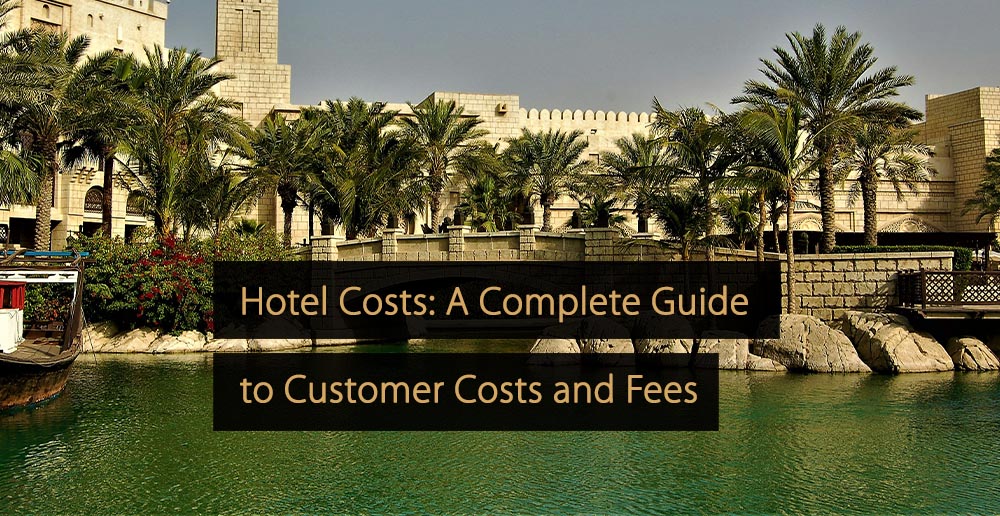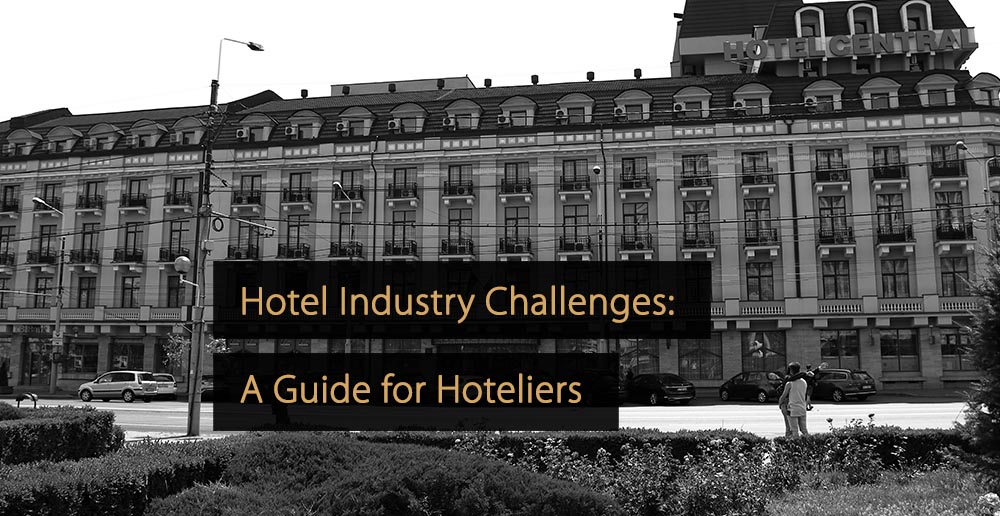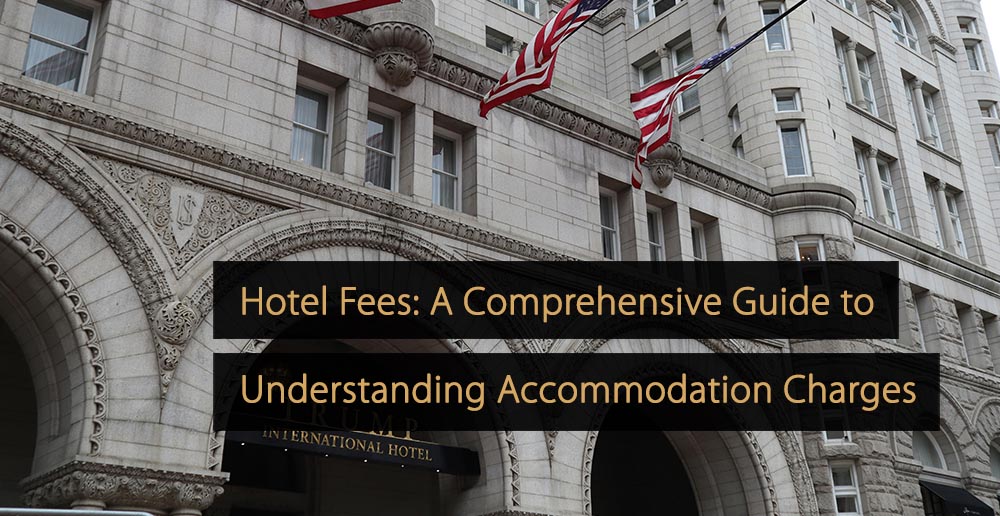The types of hotels available to customers range from full-service and chain hotels, through to boutique hotels, lodges and inns. Hotels are generally categorized based on facilities, features and marketing. Hotel options are important because the various market segments will have different needs, preferences and budgets. Hoteliers can also identify a gap in the local market and shape their hotel around plugging that gap.
In this article, you can learn all about the different types of hotels available to guests, what they have to offer, how hotels are classified in terms of star ratings, and much more.
Table of Contents:
- What is the Hotel Industry?
- Types of Hotels: Important Classification Guidelines
- 15 Types of Hotels and What They Have to Offer Guests
- Understanding Hotel Star Ratings
- Exploring Types of Hotel Rooms
What is the Hotel Industry?
The hotel industry is the name given to the section of hospitality focused on short-term guest accommodation. Broadly, the industry consists of managed businesses charging guests for overnight stays.
It should be noted that the hotel industry actually includes businesses like motels, inns and hostels, as well as various types of hotels. It is a service industry, which offers a wide range of services beyond a bed for the night.
In the “Hotel Industry: Everything You Need to Know About Hotels!” article, you can explore more about what the industry is, what it offers to customers and how it is distinct from hospitality in general.
Types of Hotels: Important Classification Guidelines
In addition to various types of hotels, like chain, full-service and extended-stay hotels, businesses in the industry are often classified according to quality. The most common classification is star ratings.
Star ratings are determined by recognized industry bodies, who assess hotels based on a variety of criteria. For example, the size and quality of rooms is a major factor, as is the quality and variety of amenities and additional services provided. Grading will also consider food availability and standards.
Furthermore, industry bodies will evaluate the level of professionalism, skill, and attentiveness displayed by hotel management and staff members. Accessibility is another important issue when classifying hotel businesses, while the very best hotels will also offer guests a high level of personalization.
15 Types of Hotels and What They Have to Offer Guests
In the sections that follow, you can explore 15 of the most important types of hotels available for guests to book.
Video: TYPES OF HOTEL: Motel, Flotel, Rotel, Boatel
1. Full-Service Hotels
Full-service hotels are hotels that offer an extensive range of services and amenities beyond simple lodging services. Typically, this will include things like on-site bars, restaurants, shops, gyms and spas.
These types of hotels are an important section of the market because they deliver a complete experience. Most are mid-range, upscale or luxury properties and hotel guests can expect excellent convenience.
Other common features include lounge areas, meeting or conference rooms, and concierge services.
2. Chain Hotels
Chain hotels form part of a group of hotels operated by the same company. These hotels will be located in different areas, and, by the most common definition, a chain should consist of at least four separate hotels.
Some of the biggest hotel companies in the world also operate multiple brands. For instance, Marriott International owns brands like Marriott Hotels, W Hotels, and The Ritz-Carlton.
These types of hotels often have standardized facilities and hotel technology across all locations in the chain.
3. Resort Hotels
Resort hotels are typically larger than conventional hotels. They are large, self-contained locations that can be thought of as destinations rather than simple accommodation options.
These types of hotels are designed so that hotel guests have everything they need on-site. This typically includes entertainment options, leisure facilities, shops, restaurants, spas, and more.
Resort hotels may offer all-inclusive stays and a clear sense of luxury. Some resorts are primarily marketed towards families and they may even be connected to tourist destinations, like theme parks.
4. Boutique Hotels
Boutique hotels are usually relatively small, trendy hotels, with unique characteristics. They are most commonly found in cities or large towns and place a strong focus on personalization.
While there are no strict requirements in terms of hotel facilities, it is common for boutique hotels to have clear, unique selling points. For instance, they may be themed, or feature distinctive decor.
Most boutique hotels have fewer than 100 rooms, and they are usually independently operated.
5. Motels and Roadhouses
Motels and roadhouses are similar to hotels, but prioritize the needs of motorists, with the word motel meaning ‘motor hotel‘. They are situated along popular travel routes and provide parking facilities.
Most motels are set up so rooms can be accessed directly from the parking area. They may have some on-site facilities and amenities, but the level of service will be lower than with a conventional hotel.
Generally, motels, roadhouses, and similar types of hotels prioritize affordability and convenience.
Video: What Is The Difference Between Hotel, Motel, and Inn?
6. Lodges
Lodges are relatively small houses, huts or cabins, which are primarily used by people engaging in outdoor activities. Many lodges are based in rural areas or near forests, mountains and similar settings.
In general, lodges are distinguished from other types of hotels by their rustic nature, their smaller size and the kind of service they provide. Most lodges will offer distinct kitchen, living and sleeping areas.
Some lodges are also aimed at very specific types of customers, such as ski lodges for skiing enthusiasts.
7. Inns
Inns are small establishments, which are often family-owned and used as short-term overnight accommodation. They almost always offer food and drink services in addition to a comfortable room.
Within the hotel industry, inns serve an important role, catering to budget-conscious travelers and those seeking a more intimate, personal touch. Inns usually aim for a “home away from home” appeal.
As inns will have fewer guests than many other types of hotels, their staff are often more attentive.
8. Budget-Friendly Hotels
Budget-friendly hotels are, as the name suggests, low-cost accommodation businesses. They will provide the services guests would expect from a hotel, but are geared towards budget-conscious travelers.
The quality of a budget-friendly hotel can still be very high, but they will not usually provide cutting-edge amenities. The approach is geared towards providing a comfortable, pleasant place to stay.
Some budget-friendly hotels are owned by major hotel brands, while others are small, independent hotels.
9. Business Hotels
A business hotel offers hotel amenities, facilities and services that appeal to corporate travelers. They may offer free Wi-Fi, printing and photocopying services, conference rooms and other relevant services.
Business hotels are one of the main types of hotels aimed at a very specific demographic. They will offer other services corporate travelers may need, including food, gyms, and access to transportation.
Ultimately, business hotels aim to combine comfort, convenience, and practicality.
10. Extended-Stay Hotels
An extended-stay hotel is designed to provide longer-term accommodation. Guests are typically able to stay in one of these properties for several weeks, a month, or even several months.
These properties are important because some guests require accommodation for longer than a conventional vacation period. They serve as a more affordable option than temporarily renting a house or apartment.
In terms of features, most extended-stay hotel types will provide kitchen and laundry facilities in the room.
11. Eco-Friendly Hotels
Eco-friendly hotels are accommodation businesses that prioritize the environment. They will take firm steps to keep their carbon footprint low and to make operations more sustainable.
The rise of eco-friendly accommodation has been one of the biggest hotel trends of recent times. This is the result of increased awareness of climate change and growing demand from customers for responsible offerings.
Environmentally-centered types of hotels may use renewable energy sources and rely on local suppliers.
12. All-Suite Hotels
An all-suite hotel can be defined as a type of hotel that provides suites instead of conventional rooms. In this context, suites are typically defined as multiple connected rooms, sold under a single room number.
These properties have a unique selling proposition and appeal to guests who want more space or distinct sleeping, living, and cooking areas. Many all-suite hotels are upscale or luxury hotels.
Some brands sell large single rooms, which are marketed as suites, even if they do not technically meet the definition.
13. Leisure Hotels
Leisure hotels prioritize the provision of facilities and amenities that allow guests to truly enjoy their stay. Swimming pools, sports facilities, fitness and wellness centers, and spas are common offerings.
This type of hotel is perfect for travelers who want to relax, unwind and get away from everyday stress. Leisure hotels can hold particular appeal for couples, solo travelers and groups.
Some leisure hotel types are based around specific leisure activities, but most offer a variety of options.
14. Bed and Breakfasts
Bed and breakfasts, or B&Bs, are similar to inns and are usually privately owned. They will provide guests with a room and a meal, which is usually breakfast in the morning, as part of their offering.
These properties are often more affordable than many other types of hotels and offer authentic local experiences. Despite their lower price, B&Bs can still reach very high-quality standards.
Many B&Bs are family-owned businesses, and the hosts may live on-site or on connected property. They usually have a very small team of staff who oversee operations, including housekeeping and food preparation.
15. Hostels
Hostels are very low-cost lodgings. Unlike most types of hotels, guests in a hostel will share the space with other people and they are effectively paying for a bed, rather than a private room.
This form of accommodation often appeals to backpackers, young travelers and others who may need to save money. They also provide a social experience, allowing guests to meet new people.
Hostels typically accommodate between 5 and 20 people at a time. Shared kitchen facilities are usually provided.
Understanding Hotel Star Ratings
Hotel star ratings are one of the main ways hotels are rated. The star rating system allows guests to quickly understand which hotels are worth their time and can also make comparisons easier. For instance, a 1-star hotel will offer the most basic facilities, while a 5-star hotel will offer a truly exceptional guest experience.
In the “Hotel Star Rating System: Types, Benefits, Significance, Examples” article, you can take a deeper dive into the topic of hotel star ratings and learn about the types of hotels that earn different ratings.
Exploring Types of Hotel Rooms
In addition to different types of hotels, there are also different types of hotel rooms. Some of these room types are categorized based on size and layout, such as deluxe rooms, suites, and studios, while others are based on occupancy, such as single rooms, double rooms, and triple rooms.
In the “Types of Hotel Rooms: The Different Hotel Accommodation Types” article, you can explore the various ways hotel rooms are categorized and learn how each of the main room types is defined.
Different types of hotels are able to appeal to distinct market segments. The sheer amount of variety helps to ensure there are short-term accommodation options to suit most needs, preferences and circumstances. For instance, a hostel will appeal to those on a limited budget, while a resort may appeal more to families and luxury travelers.
More Tips to Grow Your Business
Revfine.com is the leading knowledge platform for the hospitality and travel industry. Professionals use our insights, strategies, and actionable tips to get inspired, optimize revenue, innovate processes, and improve customer experience.Explore expert advice on management, marketing, revenue management, operations, software, and technology in our dedicated Hotel, Hospitality, and Travel & Tourism categories.
This article is written by:
Hi, I am Martijn Barten, founder of Revfine.com. With 20 years of experience in the hospitality industry, I specialize in optimizing revenue by combining revenue management with marketing strategies. I have successfully developed, implemented, and managed revenue management and marketing strategies for individual properties and multi-property portfolios.










Leave A Comment